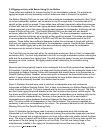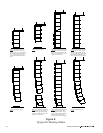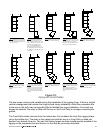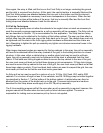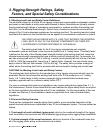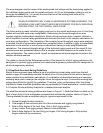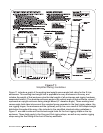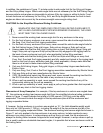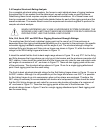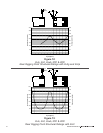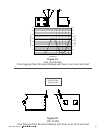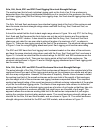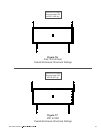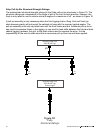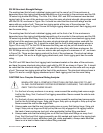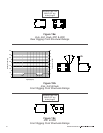
ELECTRO-VOICE
®
3.4 Complex Structural-Rating Analysis
For a complete structural-rating analysis, the forces in each individual piece of rigging hardware
throughout the X-Line system must be determined, as well as the forces on each enclosure.
Determining these forces requires complex mathematical calculations. All of these forces must
then be compared to the working-load limits detailed below for each of the rigging points and the
overall enclosures. The reader should consult an experienced structural engineer to perform the
complex structural analysis.
WHEN SUSPENDING ANY X-LINE LOUDSPEAKER SYSTEM OVERHEAD, THE
WORKING-LOAD LIMITS MUST NEVER BE EXCEEDED FOR EACH INDIVIDUAL
RIGGING POINT, AND THE OVERALL ENCLOSURE.
Xvls, Xvlt, Xsub, Xfil1 and Xfil2 Rear Rigging Structural-Strength Ratings:
The working-load limit of each individual rigging point on the rear of an X-Line enclosure is
dependent upon the rigging-track/bracket assembly as it is mounted in the enclosure, the specific
removable rigging-hardware assembly and the angle of pull. The structural-strength ratings for
individual Xvhg grid hinges and Xvhp pick-up hinges are shown in Figure 12, while the structural
ratings for the Xvhl linking hinges are shown in Figure 13.
It should be noted that the front-to-back angle range shown in Figure 12 is only 270° for the Xvhg
and Xvhp because the hinge chains can only be put into tension and the enclosure prevents a full
360° rotation. It also should be noted that all of the hinges are only rated for use over side-to-side
pull angles of a maximum of ±5°, as shown in Figure 12. There are two rigging points at the rear
of the enclosures. The structural ratings shown in Figure 12 are for a single rigging attachment
point. Each rigging point has the same rating.
The front-to-back structural-strength ratings for the Xvhl linking hinges shown in Figure 13 cover a
full 360° rotation. Although it is not possible to put the hinge into tension over 360°, it is possible
for the linking hinges to go into compression when pull-up straps are employed. Therefore, the
360° rating is necessary to accommodate both tension and compression. It also should be noted
that the Xvhl linking hinges are only rated for use over side-to-side pull angles of a maximum of
±5° as shown in Figure 13. There are two rigging points at the rear of the enclosures. The
structural ratings shown in Figure 13 are for a single rigging attachment point. Each rigging point
has the same rating.
30



